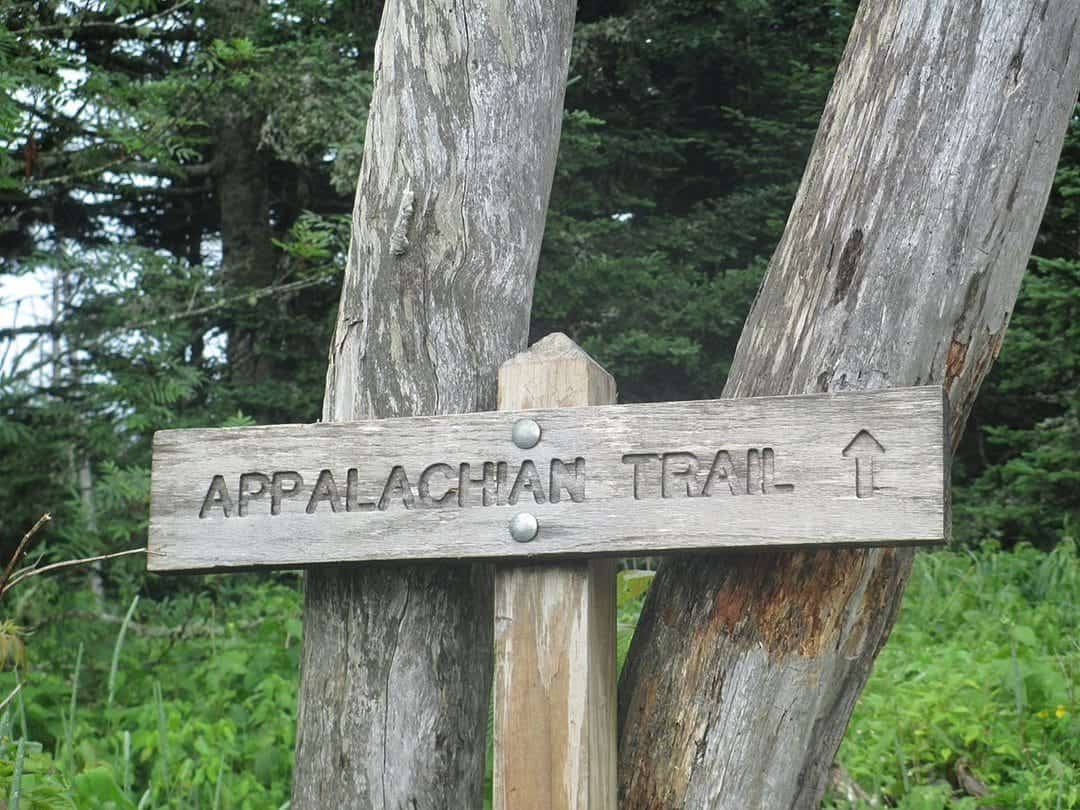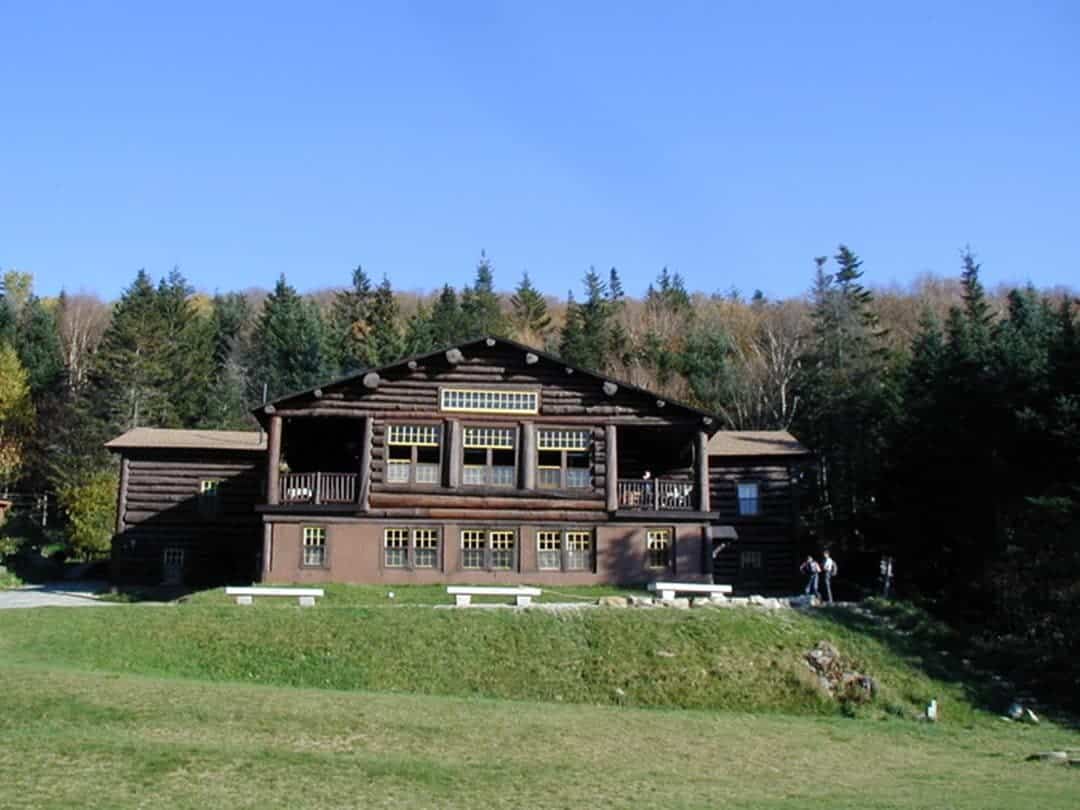Here are the 5 best things to know about hiking the Appalachian Trail in the US.
Are you a hiker? Do you fancy an epic adventure trekking the longest trail in the world? Not Canada or Australia, you’ll find this trail in none other than the US of A!
So, the Appalachian Trail is the longest hiking-only footpath in the world, ranging from the Springer Mountains in Maine to Mount Katahdin in Georgia, USA.
It spans across an amazing 14 states including eight different national forests, and many state parks, forests, and game lands.
The vast trail covers nearly 2,190-miles which is not a distance to be sniffed at.

Table of Contents
Things to Know About the Appalachian Trail
What do you need to know if you are planning on a hiking trip through this amazing and diverse trail?
1) The Routes You Can Take
Thru-Hiking
If you have time and a strong willingness for adventure then you can trek the whole trail in one go! It will take a battle of wills and a few months of your life, but if you are game then why not?
READ MORE: Check out our guide to all the best things to do in Asheville NC!
Multi-Day Hiking
Want to complete the whole trail but don’t have a few months to spare? You can take multi day trips and split the route over short trips across a span of a few years.
Pick a spot in the Shenandoah Valley, for instance, and head on some great hikes along the trail.

Day Treks
For short day hikes, access the trail from any a number of entrances in the park. In most of the areas there are no fees or permits for day hiking.
You could also take part in the 14 State Challenge and step foot in each of the 14 states that the Appalachian Trail crosses.
2) What To Pack
What to bring with you will obviously depend on which route you are going to take but there are some essentials you should never be without.
A good well packed backpack is essential and I would advise using packing cubes to maximise your space.
Check out some more details about packing cubes here.
Clothing & Equipment
- Hiking boots – Make sure they are broken in though, don’t start your trek in brand new boots.
- Pack clothes for the worst weather – Synthetic fabrics and acrylic blends or wool or silk instead of cotton help protect you against the dangers of hypothermia.
- Raincoat – A breathable waterproof outer shell with layers underneath is better than a heavy overcoat.
First Aid and Safety
- A whistle – (did you know three blasts on a whistle is the international signal for help?)
- A map and a compass – so you can navigate on the trail. Make sure you know how to use them before you set off.
- Sunglasses and sun lotion – even if it doesn’t seem that sunny, at high altitudes the UV rays can be strong.
- Torch and fire starter such as waterproof matches – especially if you are staying late in the park
Food and Snacks
- High energy snack bars – to keep you going on your hike.
- Plenty of water – you can fill up on the trail but having enough water with you is essential.
- Water treatment – if you are planning on sourcing your own water you will need equipment to boil, filter or treat spring water on the trail.
Essentials Info For Thru-Hikers
You can re-supply during your trek by a combination of buying supplies on route and shipping food parcels ahead to post offices, hostels, or businesses near to the Trail.
Some long-distance hikers use bounce boxes. Send items ahead continually to different destinations you’ll be stopping along your trip which you don’t want to carry the whole way.
If you are planning to hike in the park for more than one day you should check out the hiking basics guide on the Appalachian Trail Conservancy website.
Looking for a great place to stop along the Appalachian Trail? Check out our 3 Days in Asheville Itinerary!
3) Highlights Of The Trail
Autumn Leaf viewing
Many visitors travel to the trail to see the changing of the season and what a spectacular sight it is.
One of the smaller trails including walking the Penobscot River and Baxter Ponds in Maine or Mount Moosilauke in New Hampshire are a good way to see the forests without having to take a long trek.
The Toughest Climb
If you want a real challenge then the best is saved for last. The five miles at the end of the trail is a 4,292-foot climb steadily uphill without respite followed by a difficult to navigate descend.
Take your time and concentrate here as in some places the path is only two feet wide, with a 2,000-plus-foot drop on either side!
The Best Lookout Spot
If you want that postcard perfect shot then you may want to make your way to the Clingmans Dome, Tennessee, which is the highest viewpoint from Georgia to Maine.
On a clear day, you can see all seven surrounding states from the manmade tower.
Easy to get to for both hikers from the trail and non-hikers by driving to the nearby visitor centre and walking the half mile to the tower.
4) Getting There & Back
By Train
The trail can be accessed by train from two locations, Harpers Ferry West Virginia and Pawling New York.
Both can get you to towns nearby to the Trail and make you way from there. Maryland Rail Commuter (MARC), Amtrak and Metro-North Railroad’s Harlem line are the lines to take.
Shuttle Services
You can get access to almost any part of the Trail and back from the closest airport, bus station, or train station using a shuttle service.
The Trail guides offer a list where you can search and book. The shuttle list is also useful for parties who wish to avoid bringing two cars.

5) Where To Stay
There are many different options depending on how long you are trekking. Booking ahead is advised as many lodges only cater for a few guests at a time.
Camping
There are designated camp sites along the trail at various points which you’ll find on a good map of the area.
Remember to adhere to the leave no trace guidelines and keep the trail clean and protect the local plant and wildlife.
Inn To Inn Lodges
You can book stays along the route or part of the route such as Big Meadows and Skyland Lodge and motel rooms in Shenandoah National Park.
These can be booked directly or through a tour company who will sort out your whole itinerary if you like.
Hotel Stays
Hotels, Bed and Breakfasts and lodges in the area cater mostly for hikers passing through.
Examples include the Shamrock village Inn, in Dalton, Maine, where the friendly owners will even wash your clothes for you.
Or the 506 On The River Inn, in Woodstock, Vermont which offers a little more luxury and a great place to recover after a long hike.
Top Tips For Hikers On The Appalachian Trail
- If you are camping store your food in a bear canister as native black bears may wander into your campsite at night in search of food.
- Get yourself ready for going to the bathroom in the woods – yep if you are in it for the long haul you need to poop in the woods and bring along a trowel to cover your business correctly.
- Take your time, even the most experienced hikers can make mistakes or injure themselves if they aren’t taking the trek seriously. Plan your route and
Conclusion
How you choose to spend your time on this trail, whether that’s a day trek or a thru-trek 2000 miler, spanning a few months.
You’ll finish feeling like you’ve not only seen an amazing place but experienced something too.
It’s a bit different to discovering individual national parks such as Yosemite as you encounter such a varied landscape, environment and wildlife as you pass through the different states.
Have you ever trekked the Appalachian Trail? Do you have any additional tips to help fellow hikers achieve their goals?
Save this Pin for later?



3 thoughts on “5 Things to Know About the Appalachian Trail”
I’m thinking his brain is more upside down than his map!
I think you’re map is upside down. Mount Katahdin is in Maine, not Georgia.
^ Your (not you’re)